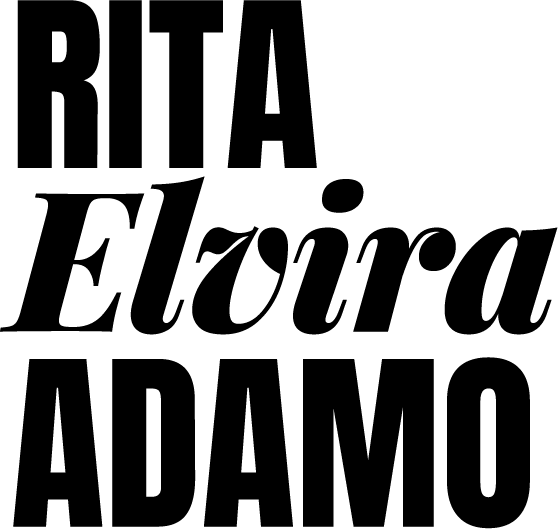LA RIVOLUZIONE DELLE SEPPIE
A Collaboration for Public Action
WHAT DO WE DO
Cultural reactivation of marginal areas to experiment with different methods of living and working collectively.
“We operate in the voids of the territories, both physical and virtual, in search of abandoned shells, occupying the space and assuming its shape. We want to create a new community by feeding it through the exchange of knowledge to live in a place temporarily but constantly.”
BELMONTE CALABRO
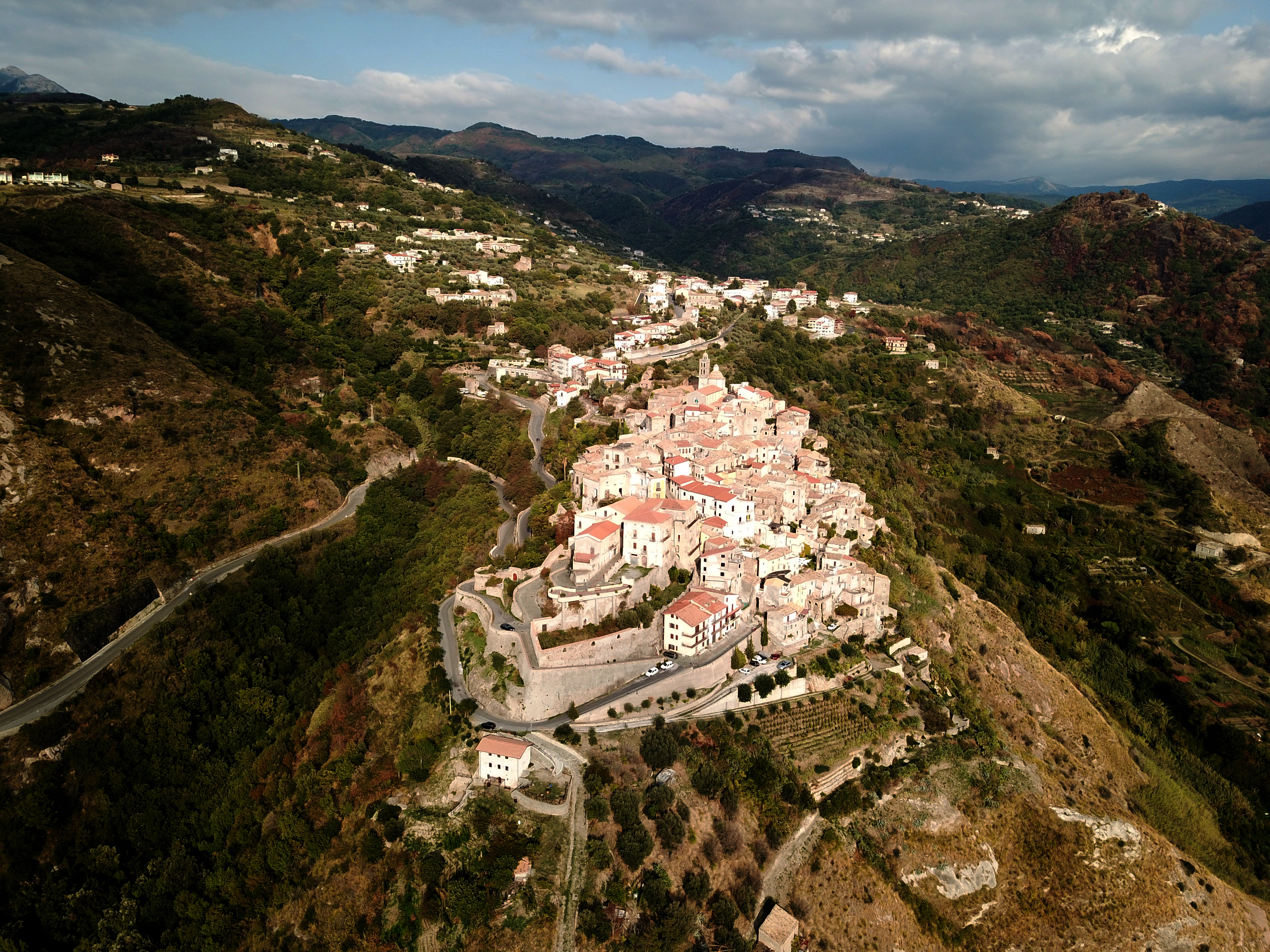
MY STORY
After graduating in London, I decided to return to Calabria.
I had thought about returning to work and concentrating on the project to be carried out in Belmonte Calabro. I was strongly motivated by the desire to contribute to the cultural growth of the region where I was born and lived the years of my early youth. I was intrigued to return to my homeland. It was a challenge to carry out the doctoral program together with the mission that I assigned to the Belmonte Calabro process. Sometimes it was complicated to distinguish between personal life and professional life. I often wondered whether or not what I was doing could have an impact on the territory. I was afraid that the community could be influenced by the stereotypes of the classic prejudices that are usually found in peripheral and marginal places.
In the end, although unforeseen, when the possibility of participating in a call for a PhD at the Università Mediterranea di Reggio Calabria arose, it seemed the right context to be able to continue working in the area and, at the same time, to have a formal framework that could give guidelines to the development of what the BelMondo process, in Belmonte Calabro, could become.
I had thought about returning to work and concentrating on the project to be carried out in Belmonte Calabro. I was strongly motivated by the desire to contribute to the cultural growth of the region where I was born and lived the years of my early youth. I was intrigued to return to my homeland. It was a challenge to carry out the doctoral program together with the mission that I assigned to the Belmonte Calabro process. Sometimes it was complicated to distinguish between personal life and professional life. I often wondered whether or not what I was doing could have an impact on the territory. I was afraid that the community could be influenced by the stereotypes of the classic prejudices that are usually found in peripheral and marginal places.
In the end, although unforeseen, when the possibility of participating in a call for a PhD at the Università Mediterranea di Reggio Calabria arose, it seemed the right context to be able to continue working in the area and, at the same time, to have a formal framework that could give guidelines to the development of what the BelMondo process, in Belmonte Calabro, could become.
Before starting this journey in October 2018, I was not aware of the amount of material
and high interest that had already been produced in Italy since 2013, with the birth of the National Inner Areas Strategy, on themes, political and social issues related to these marginal areas.
Then the whole issue of territorial imbalances, year after year, took on a new meaning, a deeper
significance, a more urgent relevance.
The viral pandemic that has swept the world since February 2020, and is still going on in the
days I am writing this, has forced us to think about settlement patterns, all kinds of settlement patterns, across the planet.
Without repeating any cliché, it can be said that the effects of the pandemic have shown the fragility of a system of organizing activities in space that has as its main engine the private appropriation of urban rent and of a system of organizing the economy that is completely insensitive to the environment and to sustainability and durability. The fragility in the face of this and other by now recurrent crises concerns, in profoundly different forms, both highly concentrated urban areas and diffuse urban areas and low-density territories. It cannot be taken for granted that the effect of the pandemic is to make less populated areas more attractive.
Without repeating any cliché, it can be said that the effects of the pandemic have shown the fragility of a system of organizing activities in space that has as its main engine the private appropriation of urban rent and of a system of organizing the economy that is completely insensitive to the environment and to sustainability and durability. The fragility in the face of this and other by now recurrent crises concerns, in profoundly different forms, both highly concentrated urban areas and diffuse urban areas and low-density territories. It cannot be taken for granted that the effect of the pandemic is to make less populated areas more attractive.
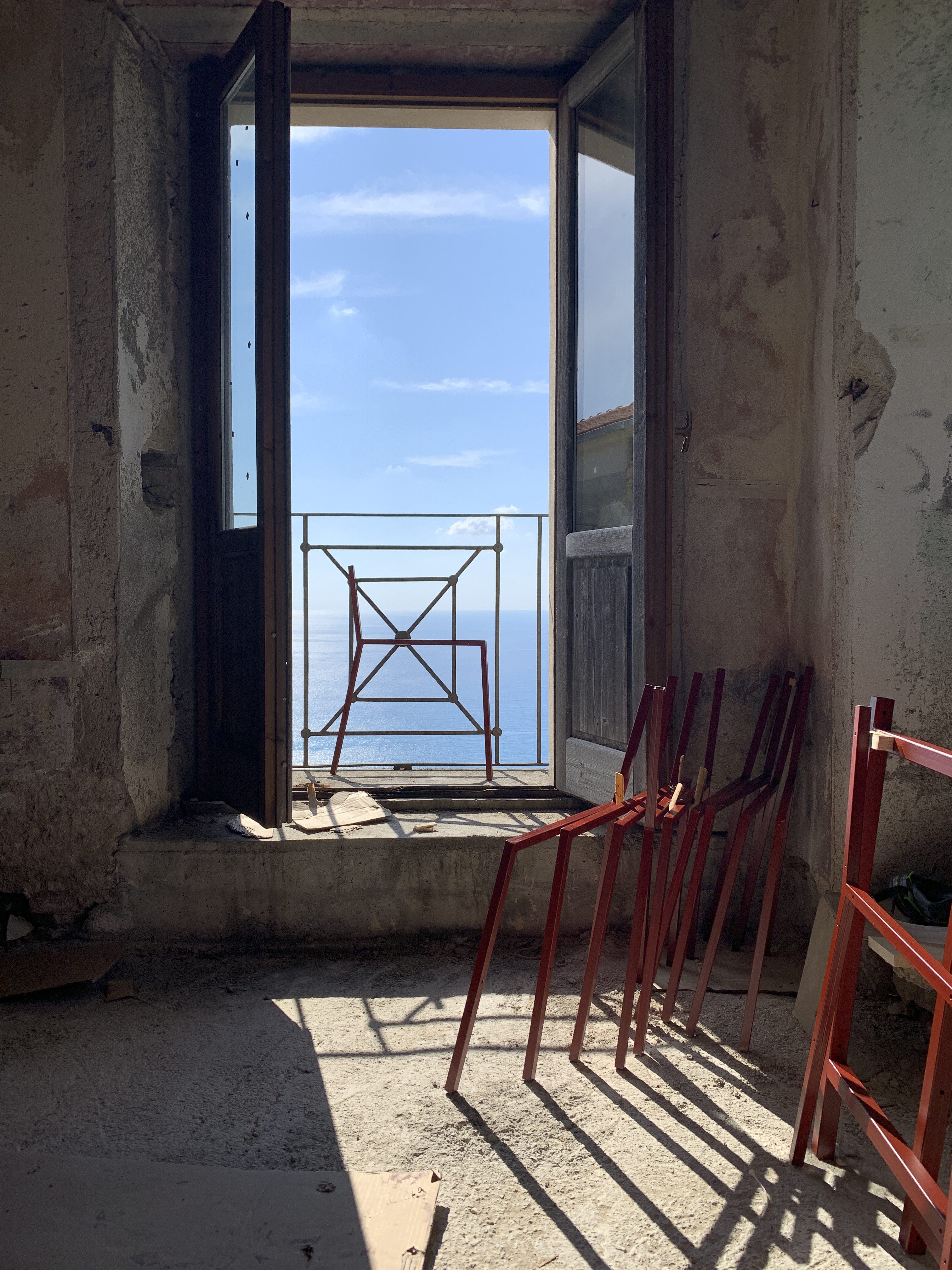



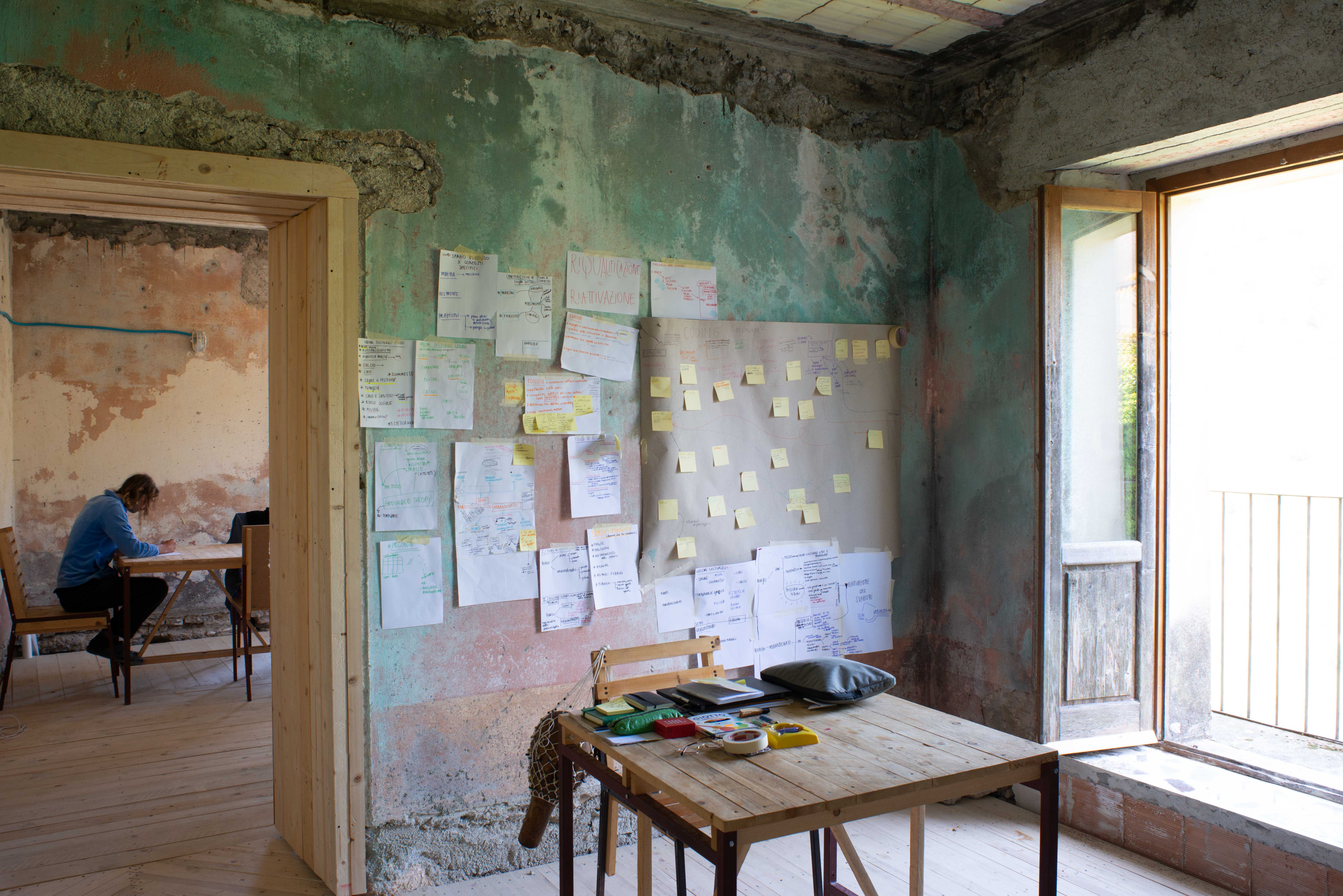

The outcomes are, first and foremost, determined by political and administrative
choices.
The case studies were chosen for my PhD converge in recognizing that there are consistent indications of the existence, in marginal rural areas, not only in Italy but also in Europe, of subjects that already today are bearers of a paradigm shift, which is perhaps possible and in any case necessary.
New inhabitants-producers, who however without a coherent national strategy, a risk to remain isolated as many points of a sort of acupuncture practice on territories, that however doesn't succeed to cure the body in its totality.
The Calabrian context is one of low density, but with often dysfunctional and unplanned densities and weak areas characterised by depopulation and loss of services. Without integrated and systemic policies, the natural tendencies, even when the emergency caused by the pandemic is over, will not produce territorial rebalancing, and indeed any decentralisation of settlement could accentuate dysfunctionality and congestion.
The case studies were chosen for my PhD converge in recognizing that there are consistent indications of the existence, in marginal rural areas, not only in Italy but also in Europe, of subjects that already today are bearers of a paradigm shift, which is perhaps possible and in any case necessary.
New inhabitants-producers, who however without a coherent national strategy, a risk to remain isolated as many points of a sort of acupuncture practice on territories, that however doesn't succeed to cure the body in its totality.
The Calabrian context is one of low density, but with often dysfunctional and unplanned densities and weak areas characterised by depopulation and loss of services. Without integrated and systemic policies, the natural tendencies, even when the emergency caused by the pandemic is over, will not produce territorial rebalancing, and indeed any decentralisation of settlement could accentuate dysfunctionality and congestion.




During the research, I perceived, not only the territorial imbalances between urban and rural but
also, those in the consideration between the traditional research and the action research, as
well as the consideration of formal and informal architecture.
If we review the title of my PhD thesis we can understand its applicative projection: experimentation for public action and a different dimension of architecture. Experimentation for a public action means to have a series of scenarios, strategies and actions, to evaluate the interactions between actions and interventions in a territory, between professionals and local community, linked to a shared long-term vision. The project ideas, which concern interventions on the settlement
capital, the educational system and the new rurality serve to highlight the potential and strength of the so-called weak territories, through a different dimension of architecture and to indicate how - with long-term policies - they can become true engines of territorial rebalancing.
well as the consideration of formal and informal architecture.
If we review the title of my PhD thesis we can understand its applicative projection: experimentation for public action and a different dimension of architecture. Experimentation for a public action means to have a series of scenarios, strategies and actions, to evaluate the interactions between actions and interventions in a territory, between professionals and local community, linked to a shared long-term vision. The project ideas, which concern interventions on the settlement
capital, the educational system and the new rurality serve to highlight the potential and strength of the so-called weak territories, through a different dimension of architecture and to indicate how - with long-term policies - they can become true engines of territorial rebalancing.
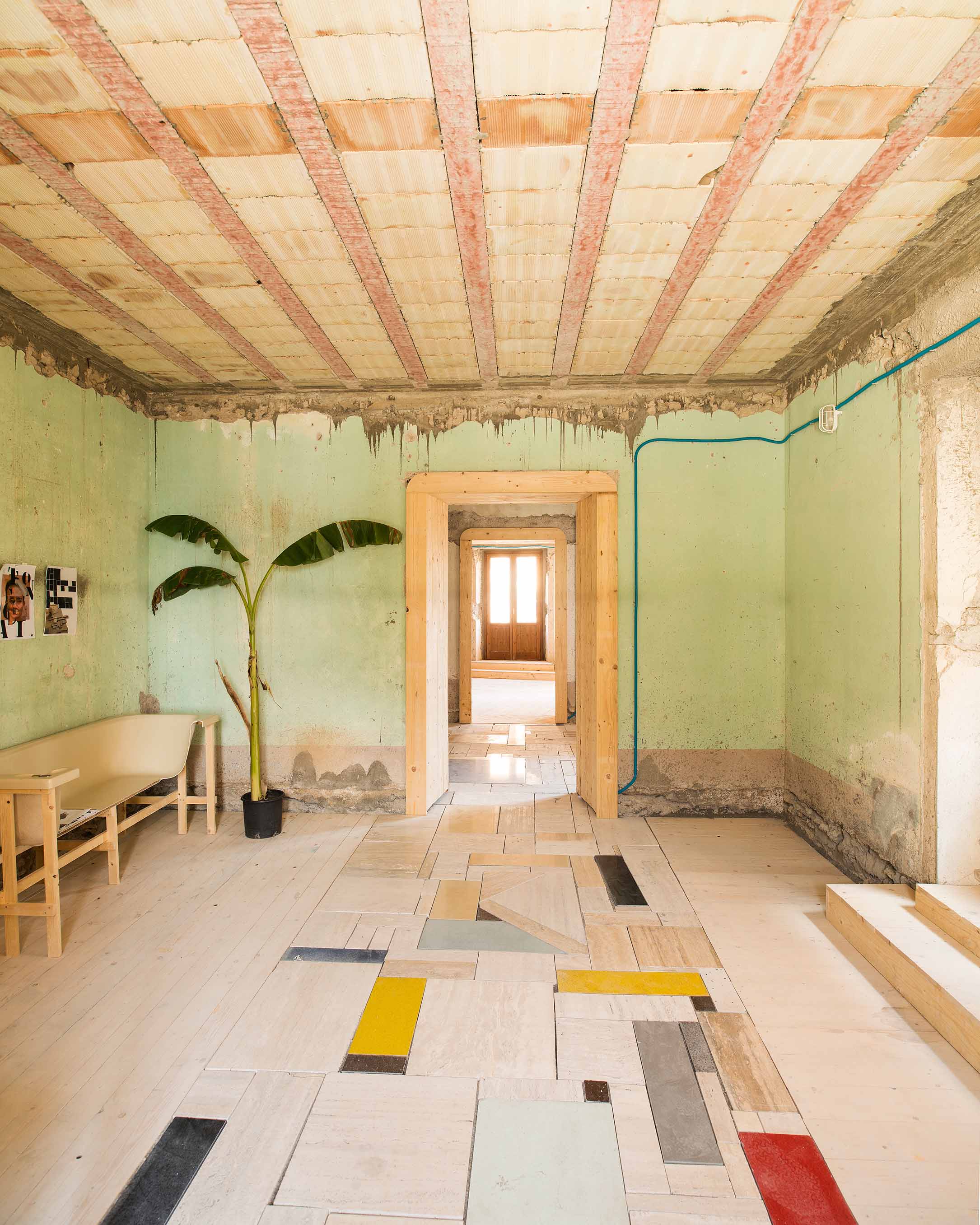
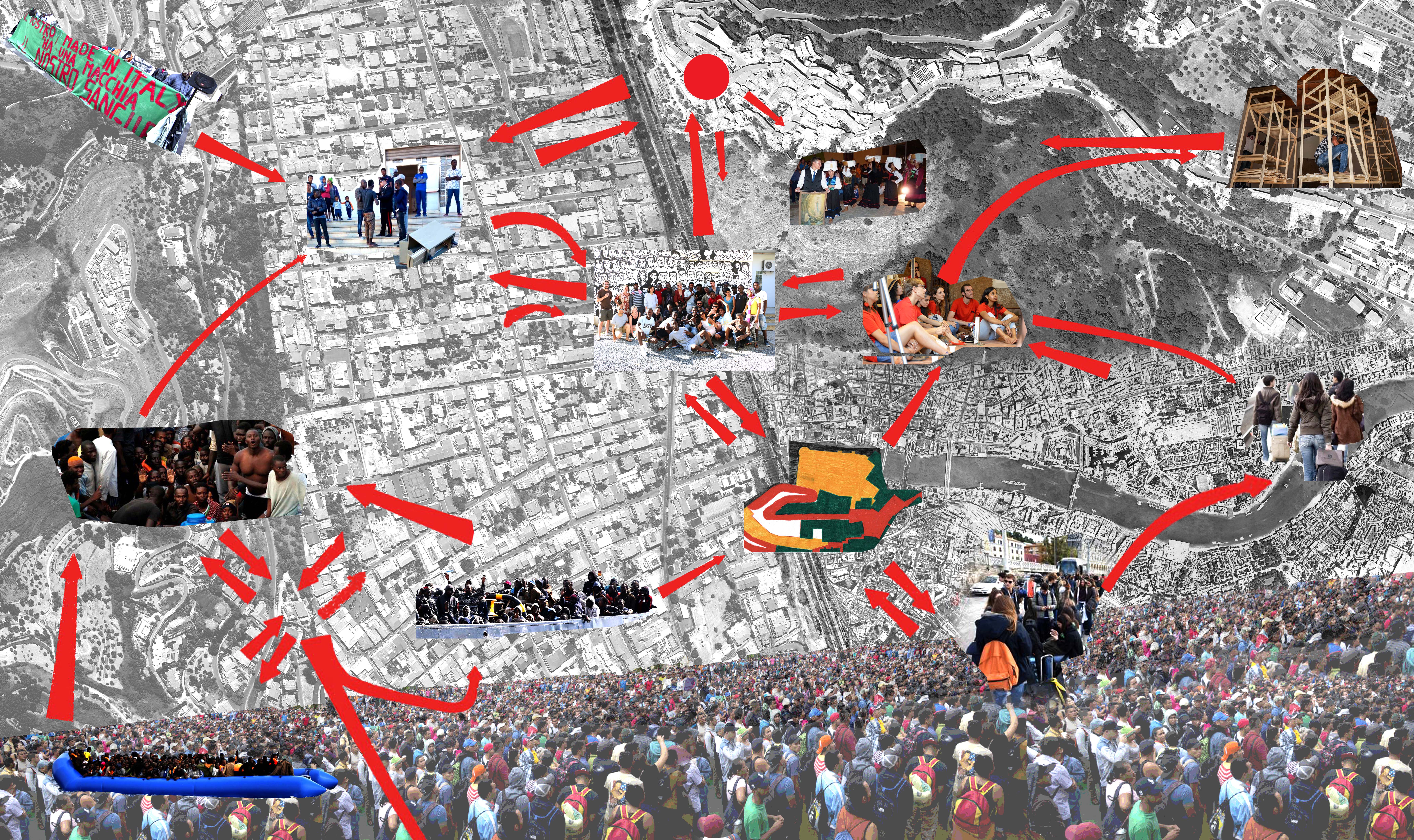
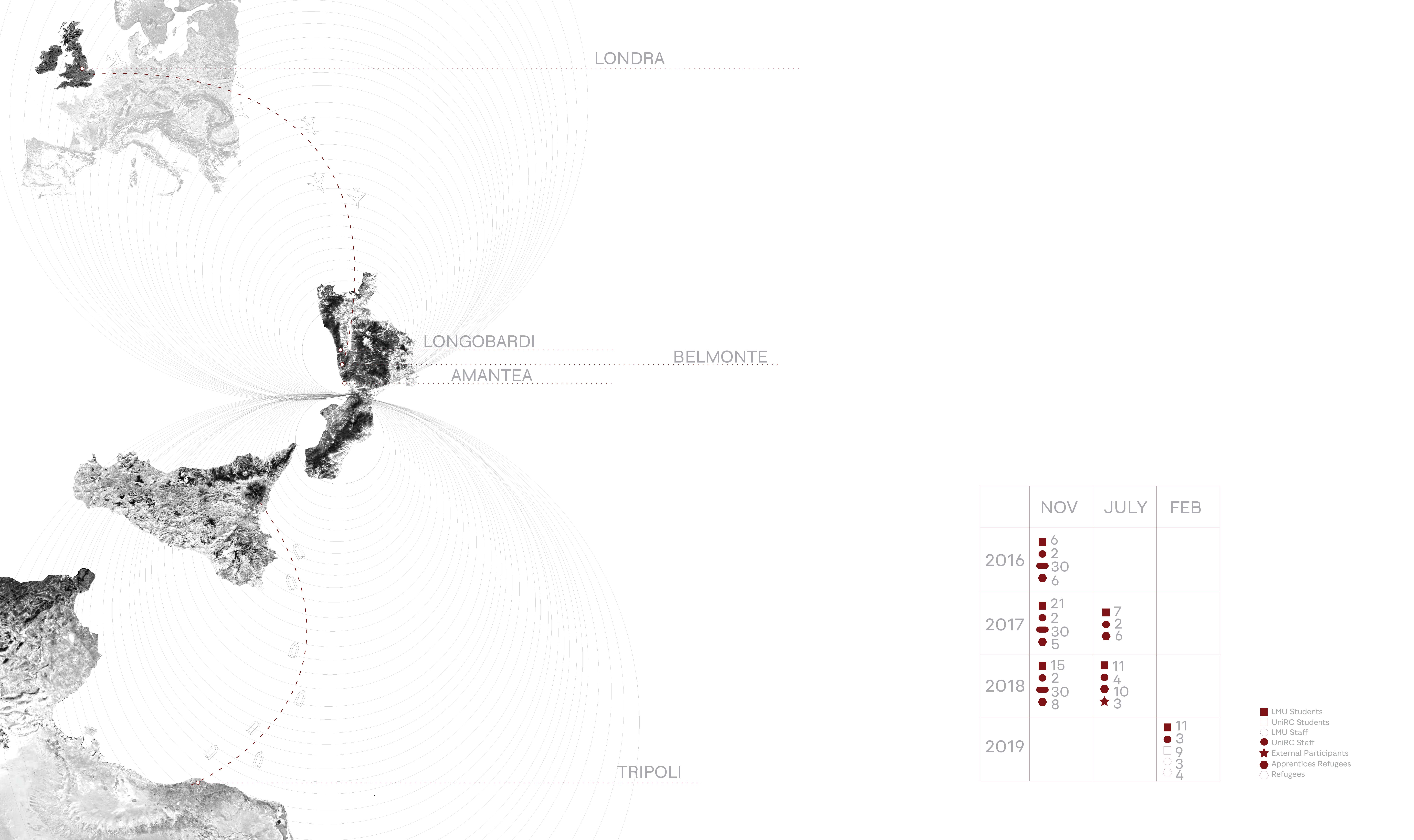
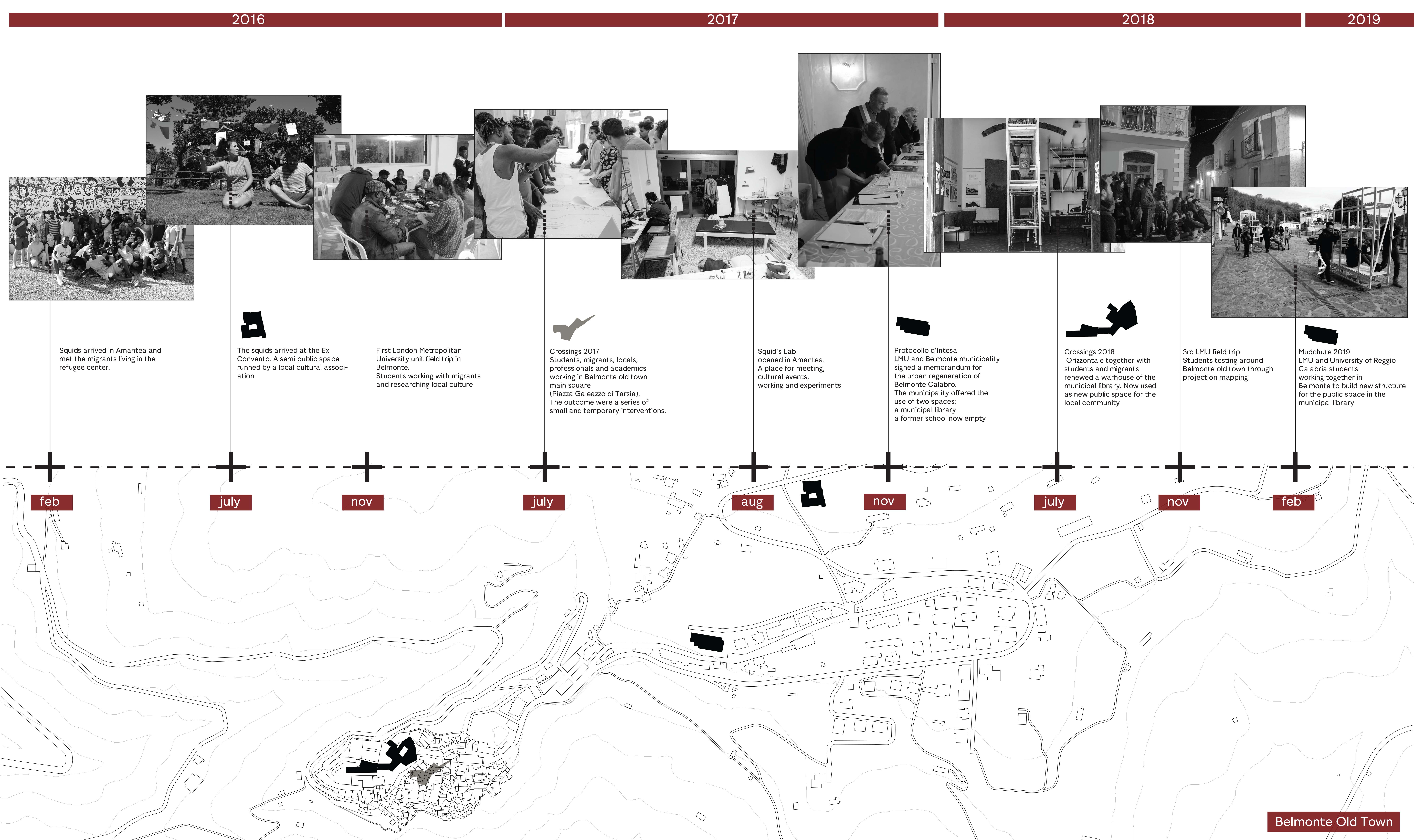
The board of La Rivoluzione delle Seppies is formed by:
Le Seppie is composed by Rita Elvira Adamo, Matteo Blandford,
Francesca Bova, Gerardo Cleto, Eleonora Ienaro,
Florian Siegel, Nicolo Spina
orizzontale is composed by Jacopo Ammendola, Juan Lopez Cano,
Giuseppe Grant, Margherita Manfra, Nasrin Mohiti Asli,
Roberto Pantaleoni, Stefano Ragazzo.
Project partners:
Comune di Belmonte Calabro
London Metropolitan University - Jane Mcallister, Sandra Denicke Polcher
Ex Convento - Paola Scialis, Stefano Cuzzocrea
Le Seppie is composed by Rita Elvira Adamo, Matteo Blandford,
Francesca Bova, Gerardo Cleto, Eleonora Ienaro,
Florian Siegel, Nicolo Spina
orizzontale is composed by Jacopo Ammendola, Juan Lopez Cano,
Giuseppe Grant, Margherita Manfra, Nasrin Mohiti Asli,
Roberto Pantaleoni, Stefano Ragazzo.
Project partners:
Comune di Belmonte Calabro
London Metropolitan University - Jane Mcallister, Sandra Denicke Polcher
Ex Convento - Paola Scialis, Stefano Cuzzocrea
